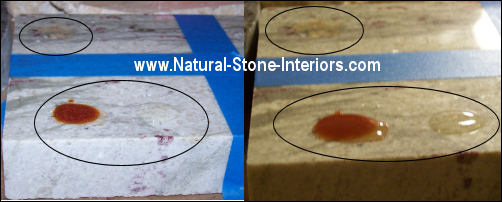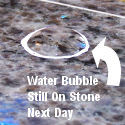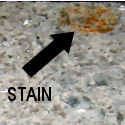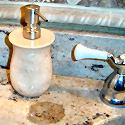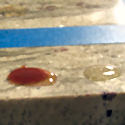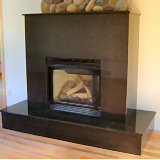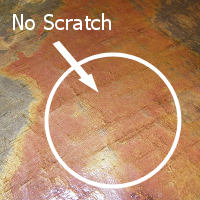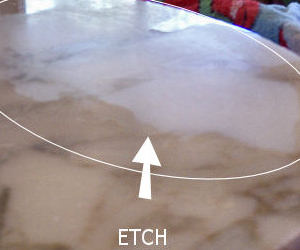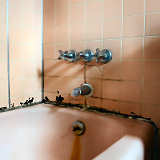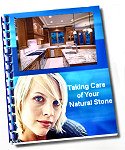 | |||||||||||
|
Loading
| |||||||||||
Natural Stone & Granite SealingTopical SealersTopical sealers for natural stone and granite sealing protect the surface of the stone from water and oil based contaminants. These sealers come in a liquid form and are applied directly to the surface of your stone.
A topical sealer creates a barrier on the surface of the stone to protect it from foot traffic, soil, dirt, oil, etch marks and stains. It sits on top of the natural stone and forms a short lived protective film.
It doesn't necessarily require a stone specialist to apply a topical sealer BUT... All of the sealer must be removed before reapplying a new coat. The topical sealer is then reapplied. This type of sealer is not usually recommended for residential stone applications. For residential, use a long lived penetrating sealer. There are two types of topical sealers:
Strippable coatings are usually water based and easily removed from the surface of the stone. Most of them are NOT designed for granite. Permanent coatings are solvent based sealers and very difficult to remove. These are NOT recommended for granite sealing. How often you need to reapply a topical sealer depends on your usage. The more foot traffic and occurrences of soiling, the more often it needs to be reapplied. AND, before reapplying a topical sealer, the old sealer must be removed.
If you plan to use a topical sealer for natural stone, marble, or granite sealing, weigh your advantages and disadvantages carefully. Sealing granite countertops? Don't use a topical sealer! Use a penetrating sealer.
You'll find More Sealing & Staining Stuff Below:
Return from Natural Stone & Granite Sealing to Stone & Granite Care Tips Return from Natural Stone & Granite Sealing to Natural Stone Interiors Home |
|
||||||||||
|
|
|||||||||||
|
Top Of Page | Home Page | What's New | Free Estimates | Site Map | Privacy Policy | Advertising | Contact Us | | |||||||||||
|
Copyright © 2005 - 2015 Natural-Stone-Interiors.com - All Rights Reserved.
|
|||||||||||

